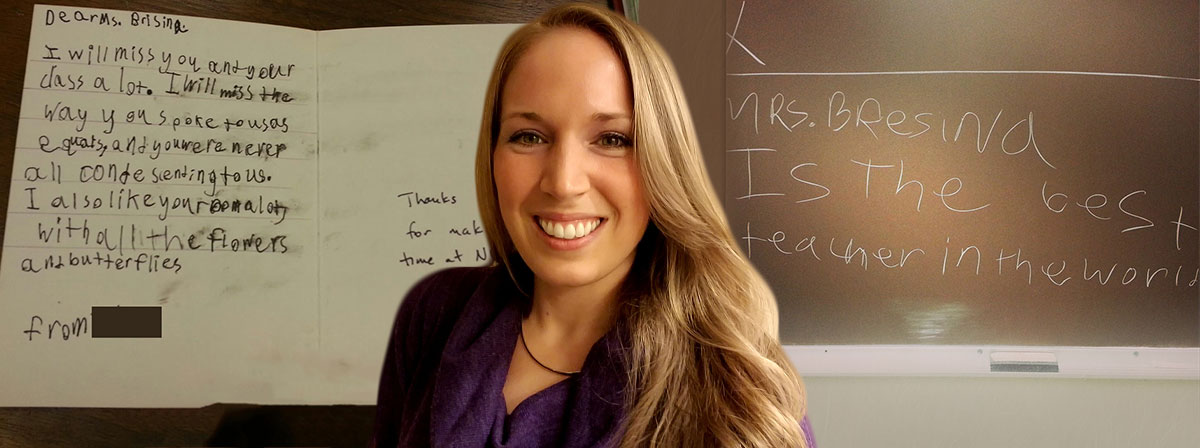
Focusing on the needs of my learners. My Story
Ever since I was a little girl, I have wanted to be a teacher. My mom was a teacher and I thought that was just the best! I remember playing school with my mom when I was a kid and thinking that we were playing school “for real” because my mom was a real teacher. How cool is that? When it came time for me to go to college, of course I selected education as my major, but I stumbled a bit when deciding exactly what type of teacher I would become. Eventually I decided that I knew whatever I chose to do with my career, I would do a great job at it because I was determined to do just that. And if I was going to be a great teacher, I wanted to teach the students who needed great teachers the most—students in special education.
I attended the University of Wisconsin – Eau Claire and earned a degree in learning disabilities and elementary education. After graduating, I moved to Iowa City, Iowa where I spent six years teaching junior high special education. As a teacher, I was privileged to work with students identified with learning disabilities and emotional & behavioral disorders. In my most recent year of teaching, I also took on the leadership role of Instructional Design Strategist (a fancy way of saying “instructional coach”). In this role, I worked in a collaborative coaching relationship with both general and special education teachers. I helped develop and provide a variety of personal professional development and supported teachers to use data to drive instructional decisions focused on increasing student achievement.
I loved being a teacher and while I have many stories of students who made great growth during their time in my classroom, I also have stories of a small but significant number of students who did not make sufficient growth. As a teacher, there were times when I felt at a loss when trying to move the bar for a student who was particularly struggling to learn. I would monitor progress on all of my students weekly, make instructional changes as the data suggested, collaborate with fellow colleagues on particularly intricate cases, and for the majority of my students this led to great success; but for some, my teaching was still insufficient. This always broke my heart. What was it about these situations that was different? What was I missing? How could I do my job better? Were there characteristics or specific needs of this particular student that my instruction was not addressing that seemed to be setting this student apart from the rest of my students who were responding well to my instruction? To what extent could I capitalize on these characteristics or needs to optimize my instruction? These were and still are questions that stick with me. I knew I could do better for my students so I decided to continue to learn at the highest level I could. This brought me to the educational psychology Ph.D. program (special education track) at the University of Minnesota. As a PhD student, I began establishing a line of research to investigate these questions.
Since completing the Ph.D. program in 2021, I have worked as an education research scientist/analyst at the National Center for Special Education Research (NCSER) in the Institute of Education Sciences (IES) in the U.S. Department of Education. This work allows me to collaborate closely with a broad range of special education research being conducted across the country. To feed my need to teach, I also run a social media account on Instagram and Facebook (@dr.reading.mama) where I disseminate research information especially focused on literacy skill growth to educators and parents. My ultimate career goal is to obtain a tenure-track professorship so I can have a more direct impact on the success of students with disabilities.
Remembering my students, my many successes, and my struggles as a teacher keeps me driven to improve the educational outcomes for children who struggle to comprehend what they read. This gives me the motivation I need to work to solve these important problems. The most exciting thing about my work is that I honestly believe it will have a positive impact on the lives of many students who struggle to learn. Being a teacher, I was able to both have and directly see the impact I made on the lives of my students. It was very powerful. When I decided to leave my classroom to pursue a Ph.D., I struggled a bit knowing that I was walking away from this environment. However, like one of my students told me, I have the potential to help even more students by being a researcher and teaching future teachers and that is pretty awesome.